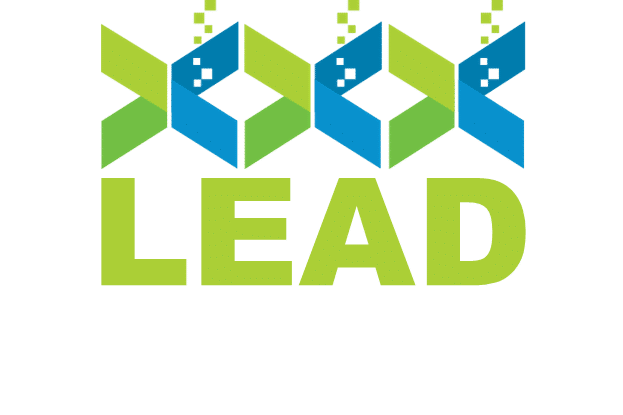Local Digital Twins: Forging the Cities of Tomorrow
The session on 'Local Digital Twins - Forging the cities of tomorrow' during the European Week of Regions and Cities 2021 took place on the 13th of October, organised in collaboration with DG CONNECT Technologies for smart communities, the LEAD and DUET H2020 projects working on Local Digital Twins, the Union of Municipalities of Turkey as well as ENoLL.
The workshop explored (i) what Local Digital Twins are; (ii) how both small and medium-sized and larger cities can benefit from them; (iii) what steps are needed for the planning, design, and implementation of Digital Twins in cities; (iv) how Capacity Building can empower cities in this endeavour and (v) what the main challenges and potential are for the implementation of Digital Twins. It welcomed some 85 participants.
The European Commission presented the main policy context and highlighted how Local Digital Twins will enable the next phase of smart and sustainable cities and communities. When designing the digital twin, importantly the data foundation (availability, quality and interoperability) and the technical foundation (IoT, cloud computing, big data, AI, 5G) have to be addressed. The Commission pointed to future funding for an EU Local Digital Twin toolbox, composed of open standard solutions, reference architecture and re-usable tools, through the forthcoming DIGITAL programme.
Stories from the ground started with Sergio Fernández Balaguer from EMT Madrid, presenting the LEAD project, which uses Digital Twins for low emission last-mile logistics in 6 cities (TEN-T urban nodes): Madrid, The Hague, Lyon, Porto, Budapest and Oslo. LEAD helps create innovative business models, make freight storage and distribution more agile, encourages the use of low emission delivery vehicles and develops smart, data-driven logistics solutions. The Madrid use case aims to make city centre deliveries more efficient through optimising delivery routes, exploring alternative (and sustainable) business models, putting in place public-private cooperation mechanisms and improving data management. The possible options (value case scenarios) were discussed with a Community of Practice within the Madrid Living Lab. For the development of the digital twin, challenges are mostly related to data (including data collection, complex noise to calculate, lack of default values, anonymisation, level of data, etc.) and production of results. From the point of view of capacity building/training, the project identified the importance of tools to model and evaluate new distribution models and what impact they have on costs and emissions.
The DUET project was presented by Jiri Bouchal from Pilsen. Pilsen has gradually developed its Digital Twin thanks to several relevant EU projects (Open Transport Net, PoliVisu, S4Allcities, etc.). A local digital twin is about connecting legacy systems, better decision making and experimenting by bringing innovation to the public administrations and the private sector. The city has been able to embrace this technology thanks to political support and a strong underlying strategy, technically skilled personnel, advanced technical infrastructure managed by the city as well as state-of-the-art unmanned aerial vehicles (UAV). In the DUET project, they use the Digital Twin to provide simulation models that demonstrate the interaction between different domains (traffic, air quality and noise pollution), for example modelling how traffic flows would change due to bridge closure and how and where this would impact air quality. While the journey has not been without difficulties, including the engagement and commitment of stakeholders, the adoption of new technologies in the daily work of city administration, compatibility with existing tools and the need for additional investments, the results are promising. The project has provided the city with new tools to support policy-making. Concerning capacity building, developing expertise and skills is a challenge in the long run.
Participants were then split into three different breakout sessions to discuss (i ) Digital Twins for sustainable freight; (ii) Digital skills for Policy-making and (iii) Skills for Citizens engagement.
From these, we highlight the conclusions of the breakout group focusing on Digital Twins for sustainable freight (moderated by Carolina Cipres from Zaragoza Logistics Center, LEAD project): Local Digital Twins for freight require public-private collaboration. A significant obstacle is companies’ unwillingness to share data. It can be solved through anonymisation, removing sensitive data, or data aggregation. Additionally, to gain support for the implementation of a digital twin, interests for private and public stakeholders must be balanced (i.e. private operators may use it for optimisation purposes whereas public entities may have access to information on emissions). Local Digital Twins also face the issue of different logistics profiles in each city. Ideally, Digital Twins should be composed of a models library, and each local Digital Twin should use a combination of those models serving its own logistics profile. Lastly, for Local Digital Twins to be successful, new skills are required, not only in terms of technical background but also soft skills (i.e. openness to envision how to use this kind of approach for agile and dynamic decision making). Participants indicated that data availability, digital awareness at the political level as well as data quality and format were the greatest training needs. Many have also raised the need to learn about Living Lab management.
The session then highlighted forthcoming capacity building programmes that will support cities and communities in implementing Local Digital Twins. Claudia Ribeiro, Project Officer at POLIS Network and leader of Capacity Building, presented the capacity building plans of the LEAD project. The project is structuring their training material around topics such as (i ) Introducing Urban Freight & on-demand last-mile logistics; (ii) Living Labs for Urban Freight and Digital Twins; (iii) Modelling, simulation and data for urban freight planning; (iv) Digital Twin Technologies and (v) Policy & Decision-making. The programme is expected to be ready by the first semester of 2022 and should be delivered through MOOCs, webinars, workshops and other means. Lieven Raes, Adviser at Digital Flanders presented the capacity building plans of the DUET project. The project is developing a landing page called https://citytwin.eu, which will allow other projects (URBANAGE, CompAir and others) to look at 3D models, engage in gamification and let people understand what Digital Twins can do. DUET partners are also working on a Digital Twins book, entitled 'Open and Interoperable Local Digital Twins for Smarter Decision Making'. Finally, a MOOC is planned for the first quarter of 2022 (building on the previous PoliVisu MOOC )
The session was closed by conclusions delivered by Noirin Ni Earcain from the European Commission and Francesca Spagnoli from ENoLL. Discussions have highlighted the need for both digital (data and ecosystem governance, data analytics, modelling, AI/ML, interoperability, etc.) and soft skills (cultural change, new ways of working, etc.) Further work can continue in the context of the Living-in.eu community's Education and Capacity Building subgroup, which will identify and collate existing Learning & Development material, follow up on the Proposal for an EIF4SCC and EIF Skills Report, pursue the research project by Cedefop on skills for smart and sustainable communities and engage with the DT4 Regions project that will organise workshops and create training modules on AI and Big Data.
In case you missed it or wish to revisit the session, you can check it out in the video below.
EN-Local Digital Twins: Forging the cities of tomorrow-13WS21260 from EURegionsWeek on Vimeo.
Original article published by the European Commission in October 2021.



